The Netherlands is famous for a lot of things: tulips, cheese, canals, beautiful canal houses, world-class dikes, coffee shops, and of course, the legal status of prostitution in the low country. Yes, prostitution is legal in the Netherlands as long as it concerns voluntary sex between adults.
In April 2019, a Christian youth organization called Exxpose presented a petition to the Dutch Lower House to criminalise prostitution. They claim their aim is to “prevent the exploitation and trafficking” of women and young girls. But their stated intentions also raise questions: is placing a ban on prostitution truly going to make women safer? And does such a ban truly stop the patronization of prostitutes?
What do Exxpose want?
Exxpose’s initiative to question the legal status of prostitution in the Netherlands quickly gathered 40,000 signatures. They are also demanding the introduction of the Nordic model, a model in which the selling of sex isn’t a punishable offence, but rather the purchasing of it. The Christian youth association wants a debate on the floor of the Lower House about the issue.
ChristenUnie MP Gert-Jan Segers also supports the initiative and wrote on the Exxpose website “Love and sex belong together … Prostitution has everything to do with sex, but nothing to do with love.”
“It would be great if this citizens’ initiative forced the House of Representatives to think about the legal status that prostitution has enjoyed in the Netherlands these past few years,” he continued.
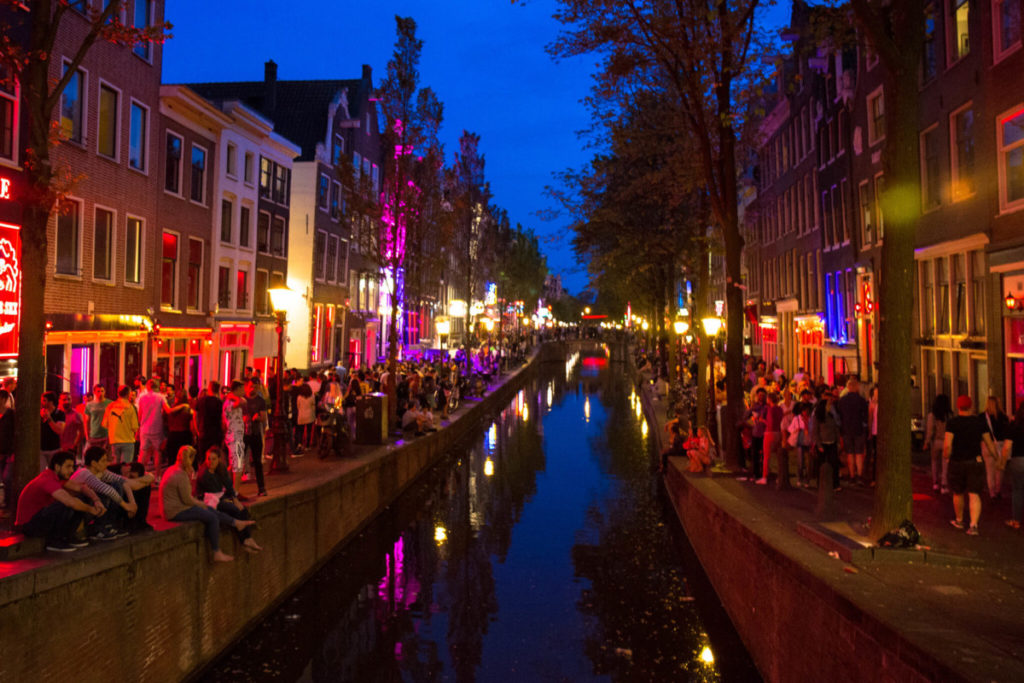
There are many people who consider MP Gert-Jan Segers’ comments to be naive as well as shortsighted and false.
That’s because adults who have sex may love each other, but sex doesn’t always have to do with love. There are millions of people in the Netherlands (and all over the world) who have sex daily but aren’t in love with each other. The idea that there must be love in order for sexual intercourse between two consenting adults to take place is both naive and misleading.
What do politicians and other countries think?
Exxpose’s initiative has received mixed responses so far from politicians, everyday citizens and of course, prostitutes. Interest groups like PROUD Netherlands have also been extremely critical of the ChristenUnie and Exxpose.
Foxxy, a board member of PROUD Netherlands believes that the call to make prostitution illegal or the adoption of the Nordic model has nothing to do with a selfless concern for the welfare of women or prostitutes but rather the fact that their religion frowns on prostitution.
“This petition is not in the sex workers’ interest. It’s people who read the Bible who are trying to stop us,” she told the BBC.
Furthermore, evidence gathered from different European countries that have adopted the Nordic model presents serious reservations about the so-called Nordic model.
The debate is now happening in all sorts of places. Exxpose believes that the vast majority of young people who end up in prostitution are forced to do so due to ‘urgent financial need’ or pimps and human traffickers.
Legalizing #sexwork means the sex trade is still subject to very tight legal restrictions, such as where one can work. Decriminalisation removes all legal restrictions around sex work and means sex workers are afforded the same rights and protections as all other workers. pic.twitter.com/bmFkVDZOJN
— Amsterdam Red Light District (@RedlightTour) September 22, 2019
But their claims are usually based on incorrect assumptions and estimates. They have neither done extensive research nor used data from interest groups to support their claims on the matter.
A lot of prostitutes believe that the groups’ aim is simply to deprive women of the right to make their own decisions as it concerns their own lives and bodies.
So what is the Nordic (Swedish) model?
Exxpose wants the Netherlands to introduce a model where buying sex is a punishable offence. A similar model has also been introduced in Norway. In this so-called Nordic model, prostitutes are not punished when caught selling sex, instead, they are offered alternative means of employment and a way out of the world of prostitution. The questions still remain, how realistic and effective is this model?
What do sex workers have to say about all this?
In response to the 40,000 signatures gathered by Exxpose, PROUD Netherlands, an interest group for sex workers, demonstrated on the streets of Amsterdam. The members were furious because adopting the Nordic model would not only take away their source of income but also make their work unsafe.
How effective has the Nordic model been in countries that introduced it?
In Ireland, where this model was recently introduced, violence against sex workers has doubled in the past year. And in France, HIV prevalence has started rising again.
Migrants are the main victims of this model. Most of them are recruited by pimps running underground prostitution rings, where they are heavily worked without regard for their financial or health status. In extreme cases, they are heavily abused and even murdered.
Exxpose’s call for the adoption of the Nordic model is based on nothing but moral policy. It is insensitive to scientific evidence and is extremely harmful to sex workers.
Wat een groot onzin dat sekswerkers willen dat het aantal toeristen omlaag gaat. Zij zijn voor sekswerkers juist de grootste inkomstenbron. Feitelijk onjuist artikel dus van de Volkskrant. https://t.co/74ZJ6T8izr via @volkskrant
— Red Light United (@redlightunited) August 9, 2019
Since 1999 prostitution has been prohibited by law in Sweden. In 2010, the government claimed that street prostitution had been halved and other forms virtually banned. There are still no figures to support that claim.
Some experts believe that it is possible that the prostitutes have left Sweden to other countries where they can safely operate without fear of being abused by pimps and violent customers.
It is also believed that pimps in Sweden and environs have taken their prostitution rings underground. This makes regulation extremely difficult and the progress (or lack thereof) of such a model nearly impossible to track.
What do the statistics say?
In France:
- 42 percent of sex workers experience more violence
- 38 percent feel pressured to have unsafe sex with customers
- 70 percent of sex workers now have a bad relationship with the police
- 78 percent of sex workers have less income
Source: medecinsdumonde and French report on prostitution.
In Ireland:
Since the introduction of the Nordic model, there has been a 50 percent increase in the number of cases of violence against sex workers.
Source: newstatesman
In Sweden:
The law has the opposite effect and, above all, has reduced access to assistance and increased violence against sex workers.
Source: Crime, Law and Social Change and British Society of Criminology
How it’s done in New Zealand
Perhaps there is more salvation in decriminalising prostitution, as has been done in New Zealand. There, legislation specifically aimed at banning prostitution has been abolished. For sex workers, normal labor law applies: self-employed prostitutes do not need a special permit, as is the case in the Netherlands.
Velvet December, coordinator for advocacy at PROUD Netherlands is a huge fan of the New Zealand model and spoke about it after a visit to the country. “We spoke with sex workers in New Zealand and noticed how positive the legislation there is for their position,” she said. “They are much more independent and the violence against them has significantly decreased.”
VICE Nederland wrote an article on the New Zealand model, stating that in New Zealand sex workers have the same rights as journalists or bicycle makers.
“Sex work is seen as a “normal” job in New Zealand and that makes it safer for sex workers to go about their businesses,” the article stated.
Would banning prostitution work?
As the social debate rages on, many consider a ban on the patronisation of prostitutes unrealistic and ineffective. It is not entirely clear what problem a ban is going to solve, but it is primarily a moral discussion that deserves social debate. The reality remains that there is a lot of demand for sexual services and banning the buying of sex will not stop the buying of sex.
Prohibiting prostitution is the same as prohibiting capitalism. It is pointless banning something you cannot eradicate. What you must do is seek to regulate it so that those who engage in it are made to abide by rules that protect them and everyone else.
The City of Amsterdam should create more window brothels for sex workers. #Poll #Job #Travel #polloftheday
— Amsterdam Red Light District (@RedlightTour) September 5, 2019
Exxpose also claims that every prostitute in the Netherlands has no love for what they do and are only doing it for the money, but the same can also be said of other professions.
After all, you only have to get on the train in the morning rush hour to see a lot of people who are not exactly passionate about going to work and are driven solely by financial need. Those professions are all legal, so what makes them more special than prostitution?
Regardless of the sector where one works, as long as their job is legal, they chose it and they aren’t hurting anyone, they should be respected. And to the feminists supporting the adoption of the Nordic model: the so-called Nordic model will only make prostitutes more vulnerable. No model, no matter what name you give it, can ever eradicate prostitution.
What is the background of prostitutes?
One of the people behind Exxpose is Willemijn de Jong who works at the Salvation Army. She is a Christian, motivated by a ‘religious conscience’ and claims to have spoken to lots of prostitutes in the Netherlands and concluded that they always started from an exploitation position.
According to her, there are no prostitutes who are strong women and have consciously chosen to go into the profession. The industry is mainly filled with women who are victims of human trafficking, abuse, and oppression. The ‘strong woman’ who deliberately chooses it does not exist. In her book, the story is always the same: one of misery and exploitation.
Interviews with sex worker
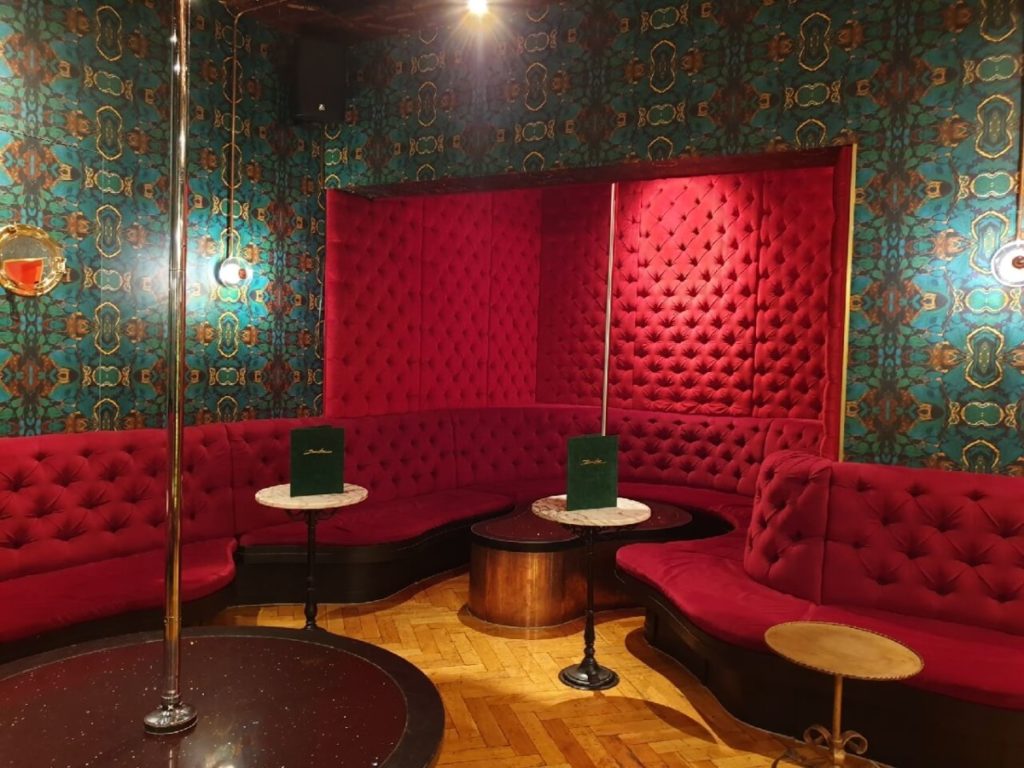
While writing this article, I decided to pay a visit to some escort agencies, strip/sex clubs and the red light districts to interview sex workers, strippers and entrepreneurs in the prostitution business. I spoke to more than 20 sex workers, took a tour of their rooms in the red light district and had conversations with sex workers on their motivations for going into the business.
One of the many sex clubs I visited was Bonton Sex Club based in Amsterdam. A discrete gentleman’s club with a lot of rules meant to provide a safe working environment for their sex workers as well as a fun atmosphere for their customers. I spoke to some of their working girls and found out that Exxpose really has a warped sense of the prostitution industry in the Netherlands.
Firstly, I realised that sex clubs, strip clubs and the whole prostitution business isn’t the den of sex, hard drugs, misery and exploitation that it has been made out to be. They are actually legitimate and clean places of business that frequently undergo checks by officials from the Dutch government and where foul play and dirty business is discovered, their permit is immediately withdrawn.
In order not to lose their permits, they have strict rules that their customers must abide by, are protective of their sex workers: make sure that they are never abused by customers, pay them well and are open to constant checks from government officials to make sure that the working girls aren’t victims of human trafficking and/or forced prostitution.
What are the rooms in the Red Light District like?
In the red-light district, each room is equipped with an alarm button for the safety of the women. In sex clubs and escort businesses like Bonton, where the focus is mainly on luxury, rooms are equipped with jacuzzis, clean beds, alarm buttons, and telephones so sex workers can easily call the attention of the security when they feel threatened by customers.
At every location I visited, there was extra attention given to the safety of the sex workers. This is something that could be at risk if Exxpose was allowed to get their way.
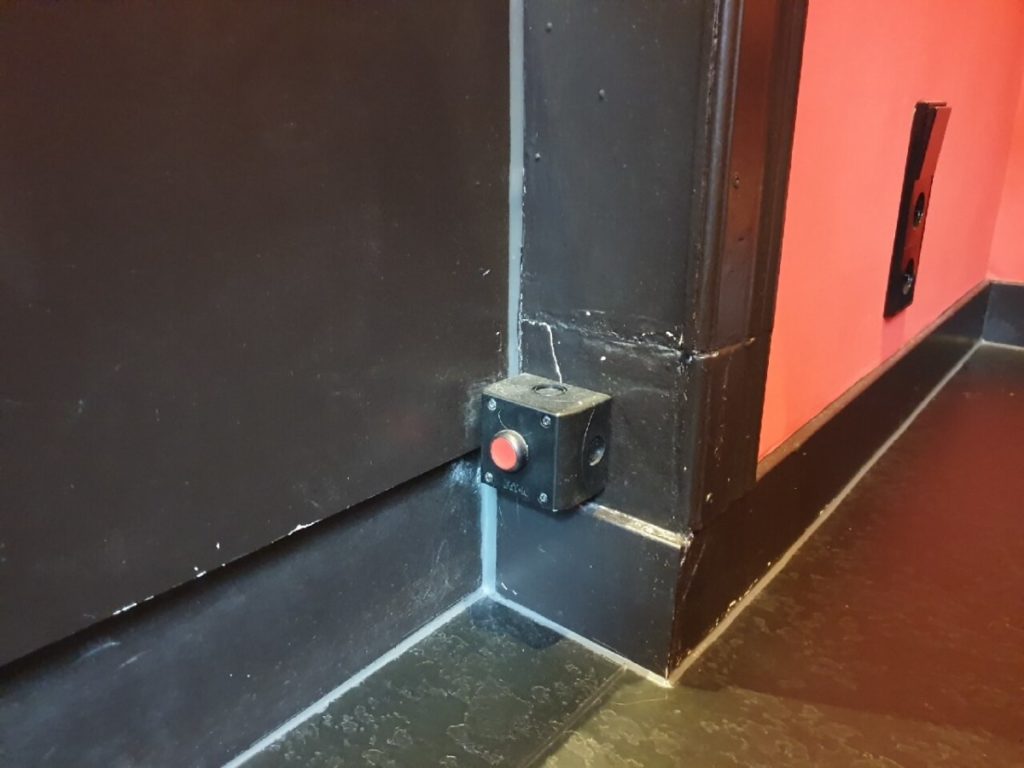
The images that Exxpose paints of the “plight of sex workers in the Netherlands” aren’t true. There is a multitude of motivations and a diversity of people who do sex work. The girls I spoke to had different motivations as to why they were in the business. Some claimed it was purely for the money, others because it was what they were good at and a few admitted to being the “party girl” and really loving their job.
How much of sex work is sex?
Another myth being thrown around by Exxpose and some politicians from the conservative side is that sex workers usually have a lot of sex in order to earn money. Turns out it’s not true.
A lot of the sex workers I interviewed revealed that there were days and sometimes weeks they made a lot of money without having sex. Yes, sex is involved in their line of work but turns out most customers pay good money to just talk or spend time with prostitutes.
At sex clubs like Bonton and Club LV, rich customers paying a lot of money just to take prostitutes clubbing is a regular request. There are also men who pay good money to just sit in the jacuzzi, drink champagne and have conversations with prostitutes. There are some customers who have fetishes that have nothing to do with sexual intercourse and pay prostitutes good money to have them gratified.
For Exxpose and others to conclude that sex is all prostitutes do in their line of work is both ignorant and a blatant lie.
Can I experience a tour for myself?
For those who are interested and would like to take a look into the world of prostitution in the Netherlands, pay a visit to Bonton Amsterdam and do their red-light district tour. The tour gives you an opportunity to start a conversation with their sex workers and experience a day in the life of a working girl.
You’d be surprised to find that much of what you have heard about prostitutes and prostitution is totally false. It is just a job like every other job and the Dutch government also earns a considerable amount of revenue from the tax that the industry generates.
What are some challenges faced by sex workers?
Unfortunately, despite paying so much tax, sex workers in the Netherlands still aren’t allowed to buy houses or rent apartments. They are also not entitled to WW Uitkering (unemployment benefits you get from the government when you are wholly or partially unemployed).
Amsterdam, Red Light District, 1958.
A street prostitute talks to a potential client next to the Protestant Old Church.In that time street prostitution was still allowed here. Over the years, more restrictions have been implemented. #Throwback #SexWork #Netherlands #DeWallen pic.twitter.com/TVOAC1NBHN
— Amsterdam Red Light District (@RedlightTour) September 20, 2019
It is a shame that organizations like Exxpose would rather seek to take away the livelihood of thousands of sex workers while making the profession unsafe for them. They would actually be helping if they focused solely on the fight against human trafficking and forced prostitution in the Netherlands.
Prostitution must stay legal for the safety of women in the Netherlands
Since 2000, the Netherlands has been trying to turn prostitution into a normal profession. PROUD Netherlands has been at the forefront of the fight to see that prostitutes have the same rights as others in the Netherlands labor market.
There is also the stigma surrounding the profession to combat which isn’t very easy with Christian organizations like Exxpose. Their initiative will seek to undo all that PROUD Netherlands has been able to achieve in the last couple of years.
The human rights organization Amnesty International also came out in support of keeping prostitution legal in the Netherlands. “We stand for the decriminalization of male and female prostitutes who work without coercion.
We rely on facts and evidence to prove that criminalization makes sex work less safe, because it means that sex workers cannot count on protection from the police and their abusers and violent customers can easily violate their rights with impunity. We know the arguments. A ban (of any kind) on prostitution will only drive it underground. We must separate human trafficking from voluntary prostitution.” they wrote.
“If two adults voluntarily have sex and a financial transaction also takes place, there should be no problem with that,” Amnesty continued. “Legalization also increases the possibilities for government control and improves the financial and health position of the prostitute. And that is what Amnesty is all about.”
Furthermore, a 2016 New York Times article also highlighted Amnesty International’s criticism of the Nordic model, stating that, “Amnesty also calls into doubt the claim that the Nordic model effectively combats trafficking, calling the Norwegian government’s evidence to this effect ‘fundamentally weak and undermined by alternative evidence’.”
The Two Camps: For and Against
The arguments from both camps (for and against) are known so well because the same discussion has been going on for ages. And that is strange because both camps agree for the most part. We all want to help women who are in the sex industry. No one is in support of human trafficking, exploitation and forced sex. And in theory, none of us, except perhaps a few Christian fundamentalists, object to payment for sex on a voluntary basis.
The main disagreement has always been about whether that “voluntary basis” exists. If women voluntarily choose to go into the industry, their safety and rights must be protected. Exxpose may disguise their advocacy as the “liberation of women” but in truth, they are only going to make the industry unsafe for all sex workers.
It is true that there are women who are trafficked and forced into prostitution. These are the women that need our help the most. So in a situation where you suspect that a woman is being forced into prostitution or a victim of human trafficking, here are the ways to report it.
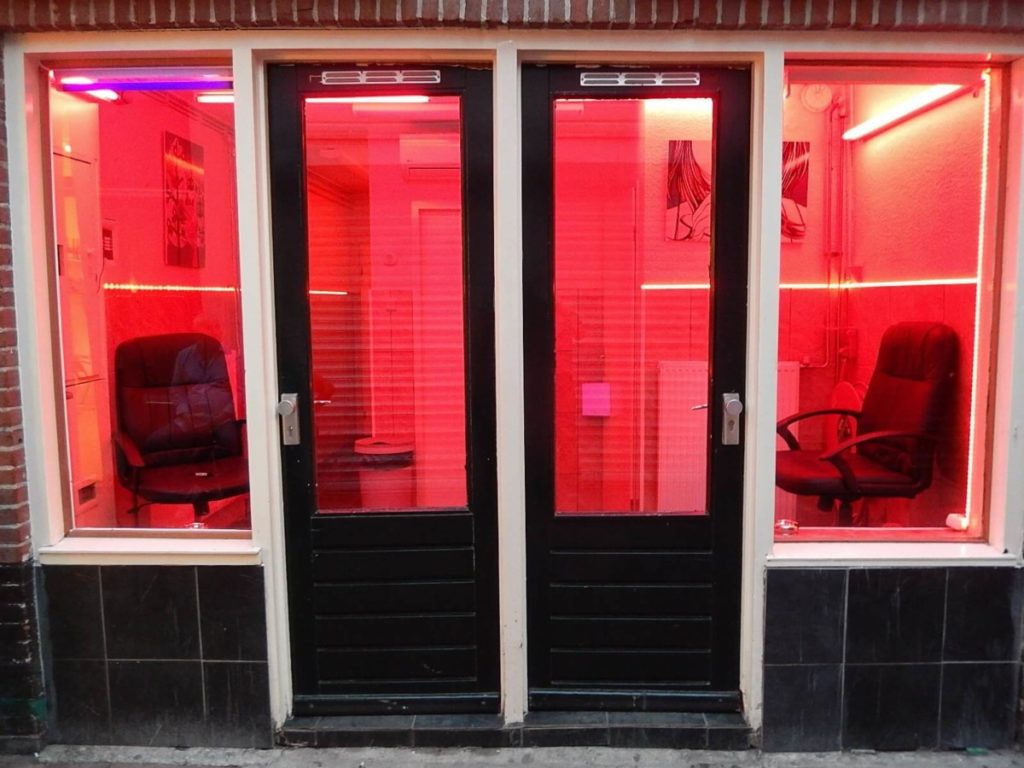
Reporting forced prostitution
How to Recognise forced prostitution
A prostitute is possibly working under coercion if:
- they are forced to have sex for a fee;
- their partner forces them to have sex with acquaintances or friends;
- their partner forces them to pay off debts by having sex with strangers;
- they are younger than 18;
- they are forced to engage in unsafe sex;
- they are abused, blackmailed or threatened.
Do you suspect that someone has been forced into prostitution? Or that someone is a victim of human trafficking? Then report this to the police via 0900-8844 or anonymously to Meld Misdaad Anoniem (M.) via 0800-7000.
The employees of Meld Misdaad Anoniem will not see your telephone number and the call is not recorded. They also do not record your name, address, and other personal details, so you do not have to be scared of being harassed by the perpetrators.
Where can I get help if I am forced into prostitution in the Netherlands?
As a victim of forced prostitution (or human trafficking) you can go to different agencies for help and relief. You can also always contact the police for help.
Agencies for help and relief with forced prostitution
There are various agencies that offer assistance to victims of forced prostitution (or human trafficking). These organizations offer legal, medical and psychological help.
- CoMensha is the national Coordination Center against Human Trafficking. They identify the nature and extent of human trafficking and are committed to the interests and rights of (possible) victims of human trafficking in the Netherlands. They are also responsible for the victims of sexual exploitation, other labor exploitation, criminal exploitation and forced begging, forced organ removal, etc.
- Slachtoffer Hulp Netherland (Victim Support) helps victims of different sorts of crimes, traffic accidents, disasters, and calamities. You can reach out to them for emotional support and they also make sure that victims are sent to the right agencies where they can get the best help.
Vandaag is het #WorldDayAgainstTraffickingInPersons.
De Speciaal Rapporteur Mensenhandel van de VN heeft gisteren in een statement aandacht gevraagd voor o.a. compensatie van slachtoffers van mensenhandel. Lees meer op onze website: https://t.co/IvLLPFj3qD pic.twitter.com/AnF3j95d0o— CoMensha (@CoMensha) July 30, 2019
Offering support to a victim of human trafficking
Victims of human trafficking are often afraid of doing something about it themselves. Sometimes the victim does not know that they are being exploited or that human trafficking is a punishable offence. If you suspect that someone you know is a victim of human trafficking, please bring it to the attention of the police immediately. You can also offer support and advice. Here are a few tips:
- Try talking to the victim about it, preferably as quickly as possible because the pimp often tries to isolate and keep them from having friends.
- Make sure that the victim knows that they can always turn to you for support.
- Share information about human trafficking with them and also let them know how the police can help them.
Reporting forced prostitution (undocumented victims)
Always report forced prostitution to the police. Make an effort to do something if you can, especially if the victim is undocumented. In the case of an undocumented victim, the Human Trafficking Residence Scheme applies.
The scheme states that:
- As a victim, you have a 3-month period where you can decide if you want to stay in the Netherlands or go back home. This is usually for victims of trafficking who were forced to leave their countries.
- The 3-month period also offers you a chance to rest and heal, especially for victims who have been heavily abused by pimps and violent customers. You may also think about cooperating in a criminal investigation into the perpetrator (s).
- If you decide to cooperate, you will receive a temporary residence permit (B8.3).
During the 3-month period, you are entitled to shelter, benefits and medical assistance. - You may work in the Netherlands for the duration of your residence permit.
Reality Check: No ban can eradicate the world’s oldest profession
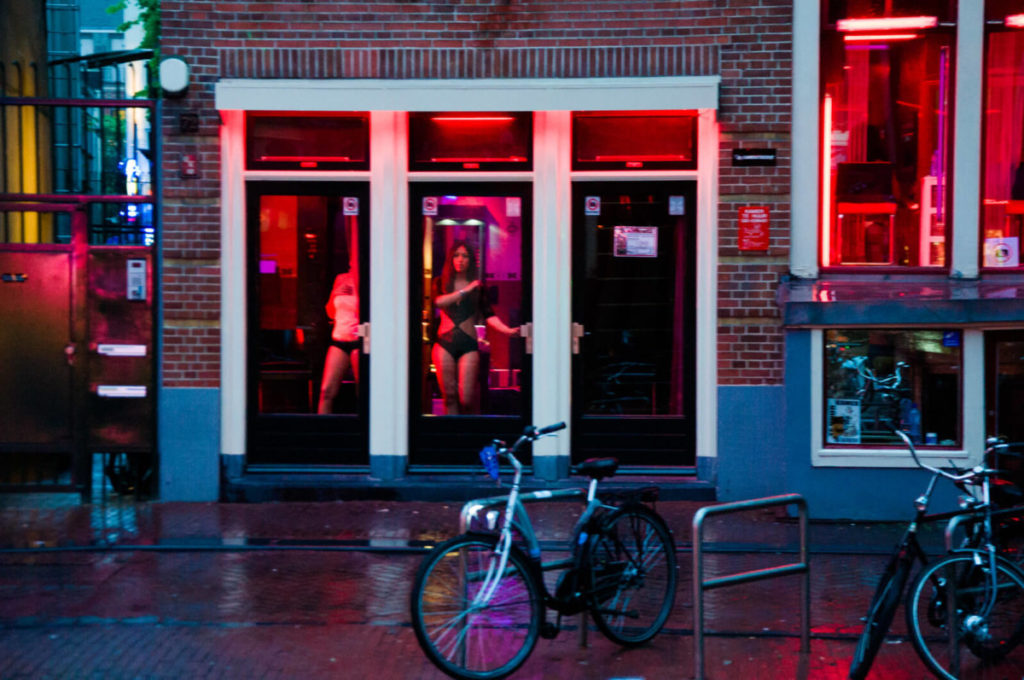
Aletta Jacobs, an advocate for women’s rights was not in favour of a prostitution ban. “That would only make women more vulnerable and also make it more difficult for prostitutes to have access to health care,” she said.
Making prostitution illegal will not stop it. It will only send it into a dark and underground world, just as it is in the United States. Pimps have a lot of power in the US and run underground prostitution rings where women who don’t stay in line are either ‘kept in line’ or even murdered. That is something that the Netherlands does not want. Seriously, the Netherlands does not want to be pulling out the lifeless bodies of prostitutes from its canals.
It is true that there are a few prostitutes in the Netherlands who are victims of forced prostitution and sex trafficking and are constantly abused by pimps. The Dutch government and the police must do more to catch these pimps and set these women free. Placing a ban on prostitution will only have adverse effects on sex workers and women in general.
A ban will send the industry underground where it will become extremely difficult to regulate and prostitutes will no longer be able to receive protection from the police and will be at the mercy of abusive pimps and violent customers. The focus should be on fighting forced prostitution in the Netherlands and in all of Europe.
Langs op de wallen bij de mannelijke sekswerkers van https://t.co/yJQoV3Okhh, die vandaag strijden voor het recht op een veilige werkplek https://t.co/qDAesVddCo
— Linda Duits (@lalalalinder) August 3, 2019
The truth is, prostitution is older than everyone on this earth. As long as the demand for paid sex exists, it can never be eradicated. You can criminalise that need, as they do in Sweden and other Nordic countries, but that is just like banning cigarettes. The ban will not reduce or eradicate the demand, it will only give rise to the sale of a black market version of the same product. An adulterated version even.
The need is there and Nordic model or no Nordic model, it will always be there. If a woman sees financial gain in meeting the sexual needs of men, then the government should create an environment that protects the financial interests of the women as well as her safety.
It is a human right not to have to prostitute yourself, but it’s also a human right to be allowed to make the choice if you want to or not. To the women who want to, let them have the freedom and a safe environment to do so.
Adopting a Nordic model or banning prostitution in the Netherlands will not only be a disaster for sex workers in the Netherlands, it will also create an unsafe environment for women in general. Furthermore, it will see the liberal values on which the Netherlands is built trampled upon and thrown into the canals.
Let us focus all our strengths on fighting forced prostitution and human trafficking in the Netherlands. Leave the legal status of prostitution alone.
What do you think about prostitution in the Netherlands? Would the adoption of the Nordic model be a good or bad thing? Let us know in the comments below!

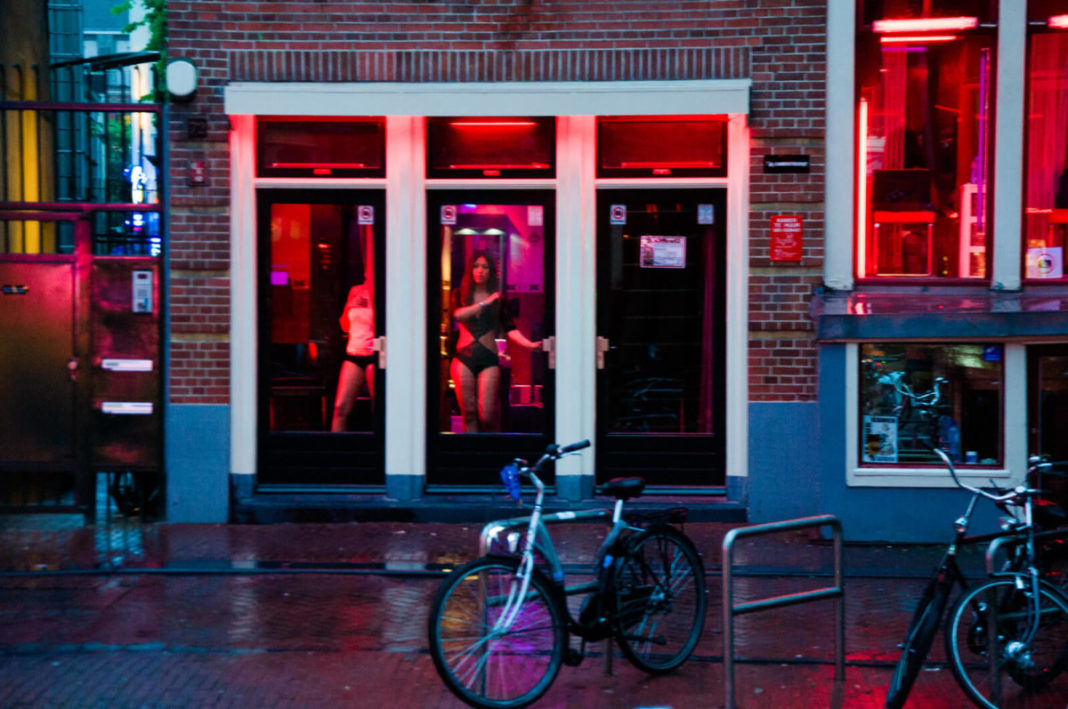
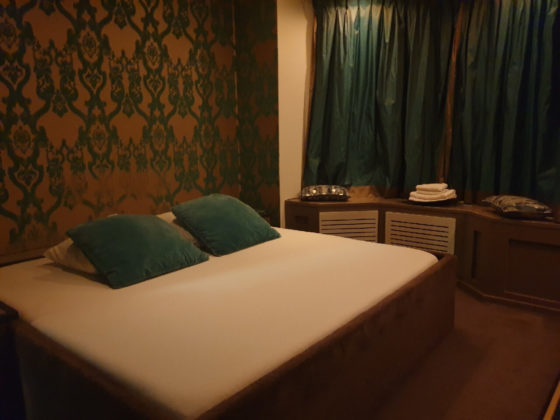
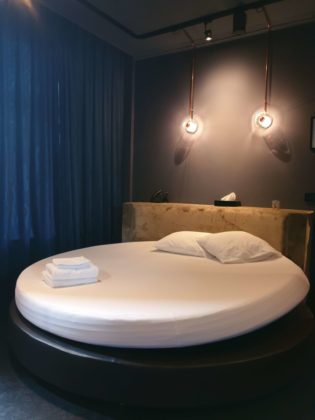
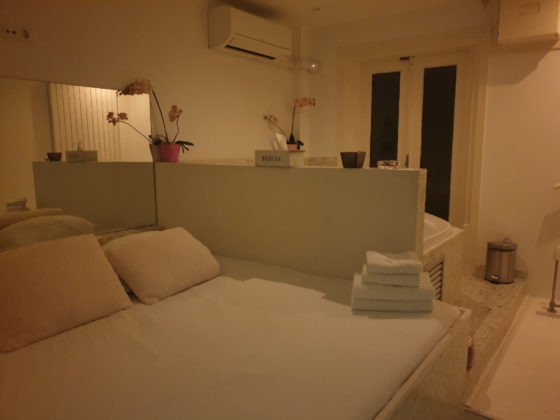
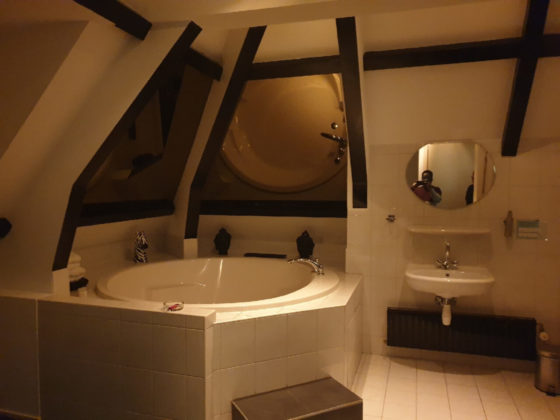

This article “German ex-police officer demolishes common arguments against the Nordic Model” refutes all of your allegations. Your pro-prostitution bias is obvious and you are simply inventing fake statistics.